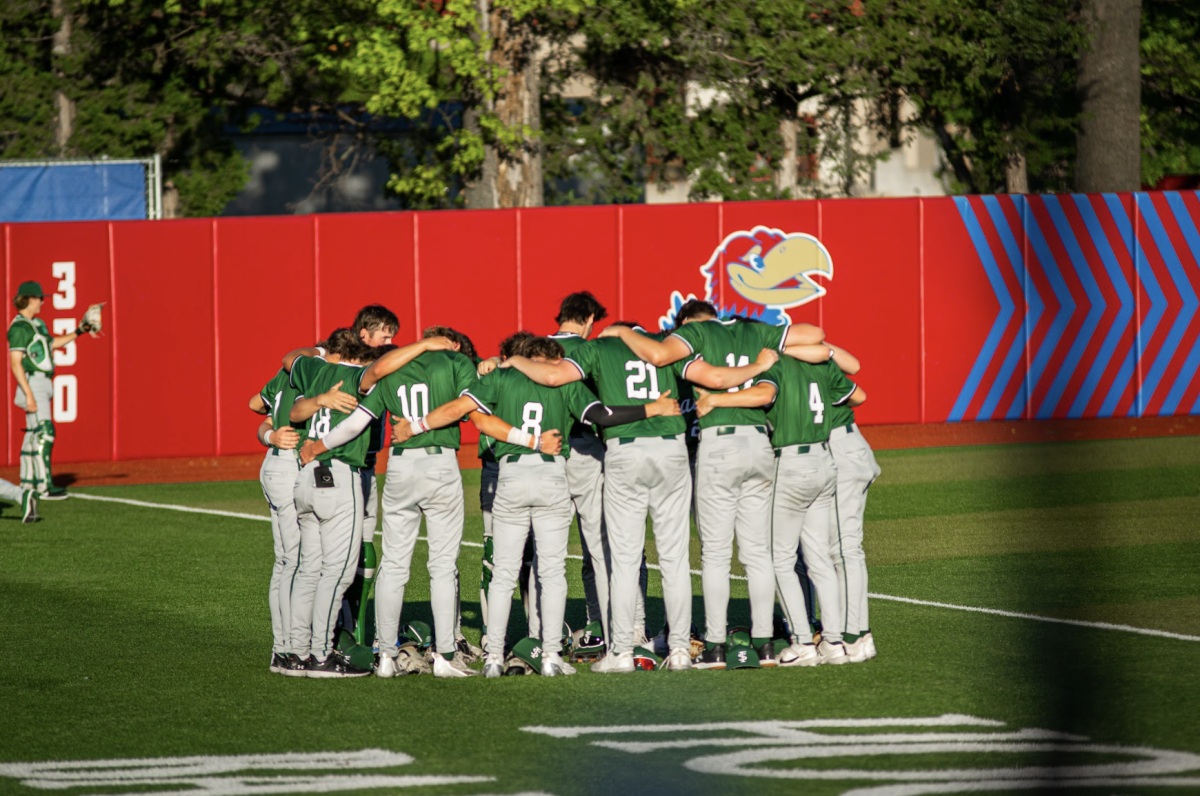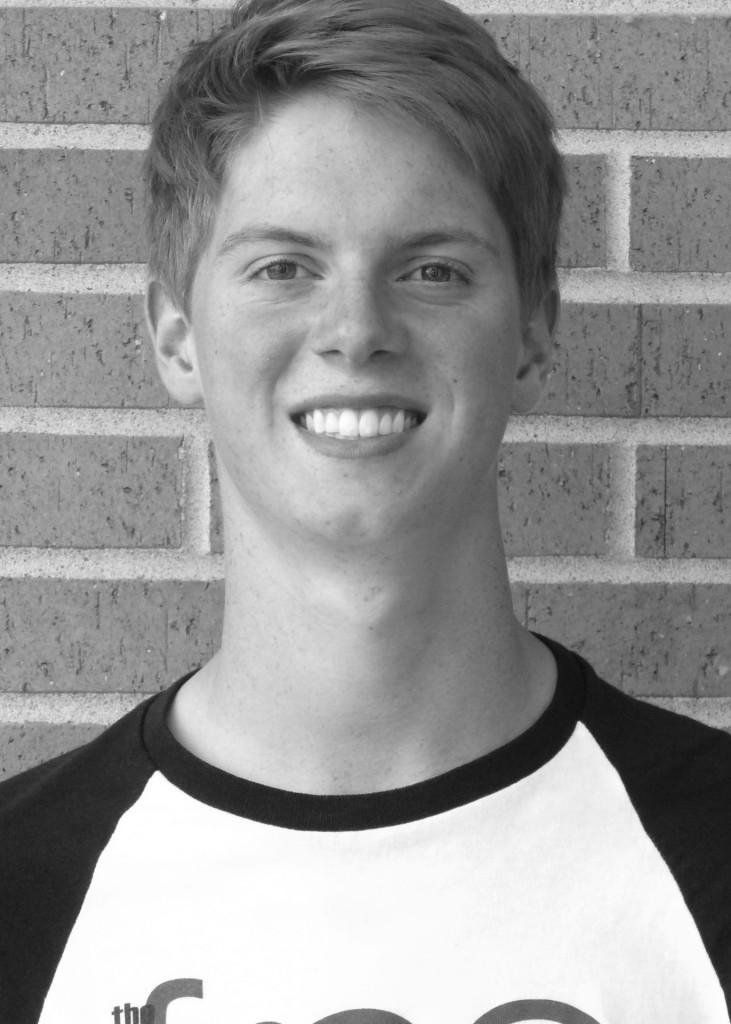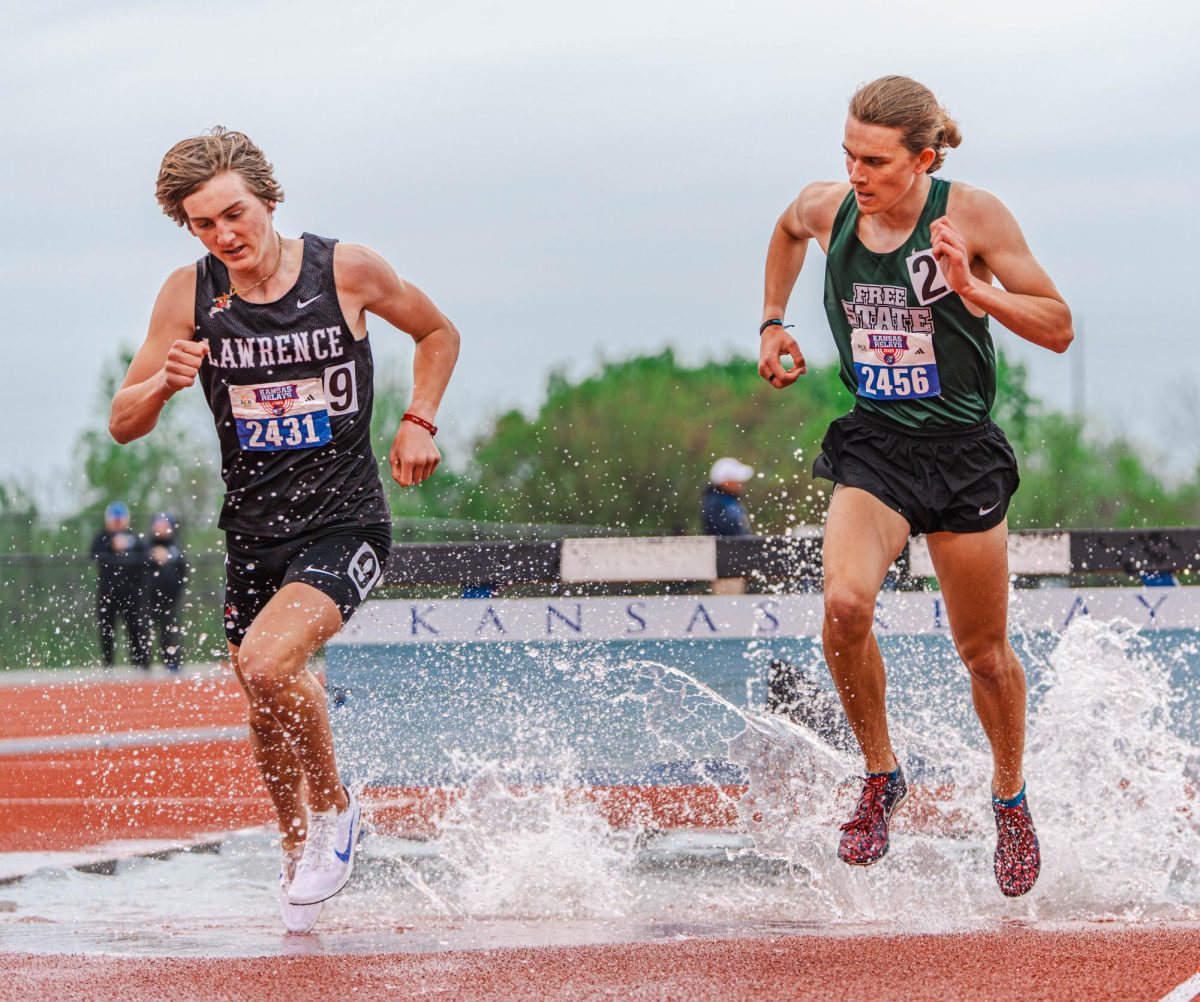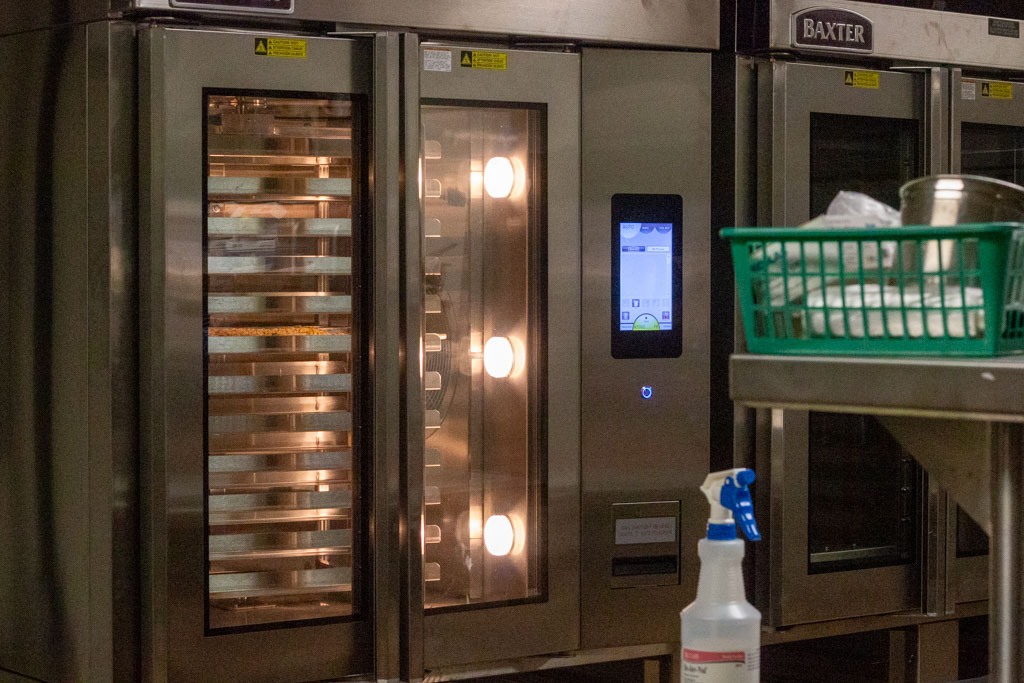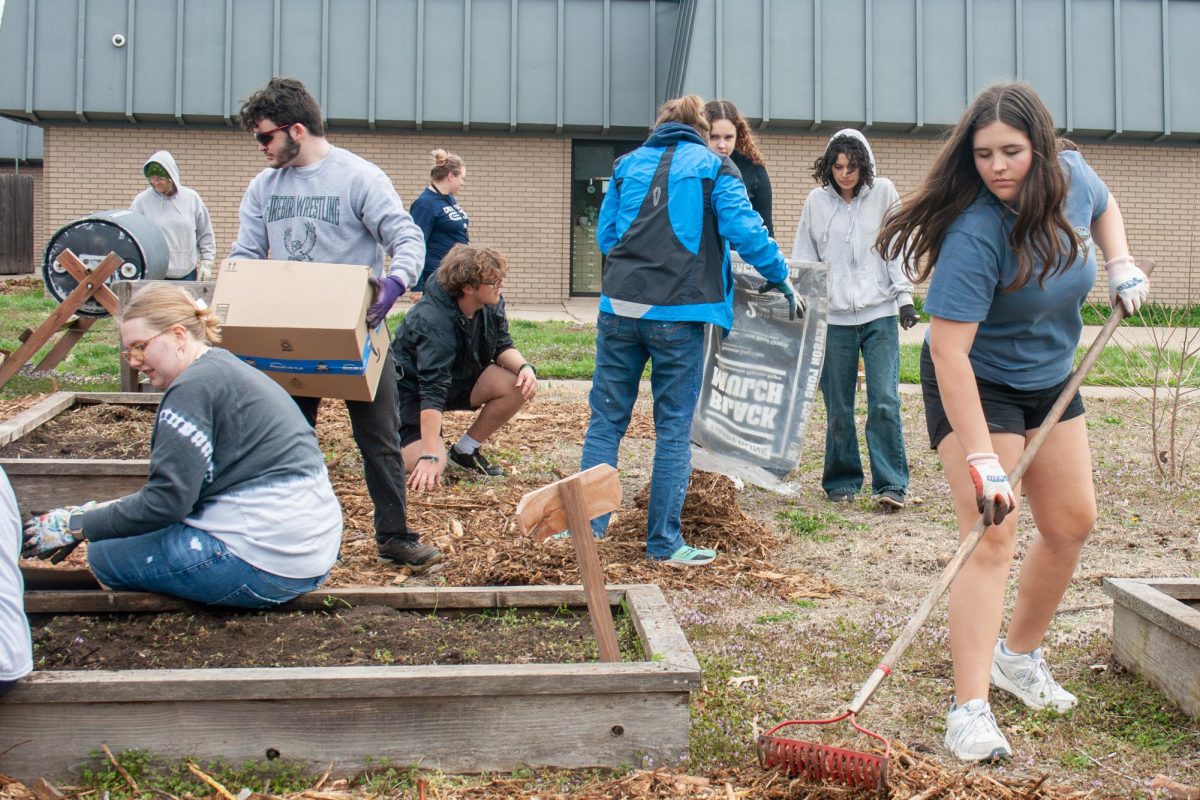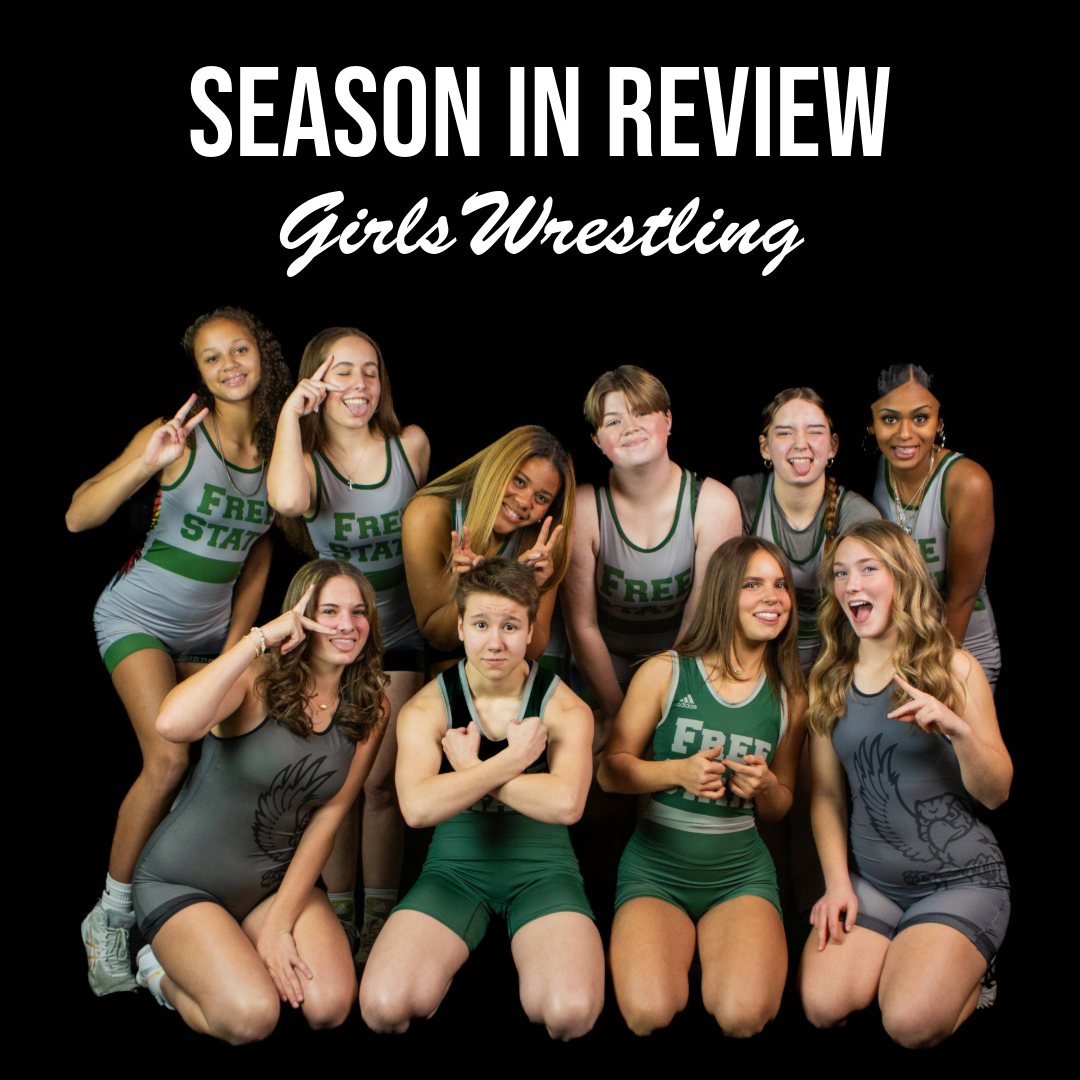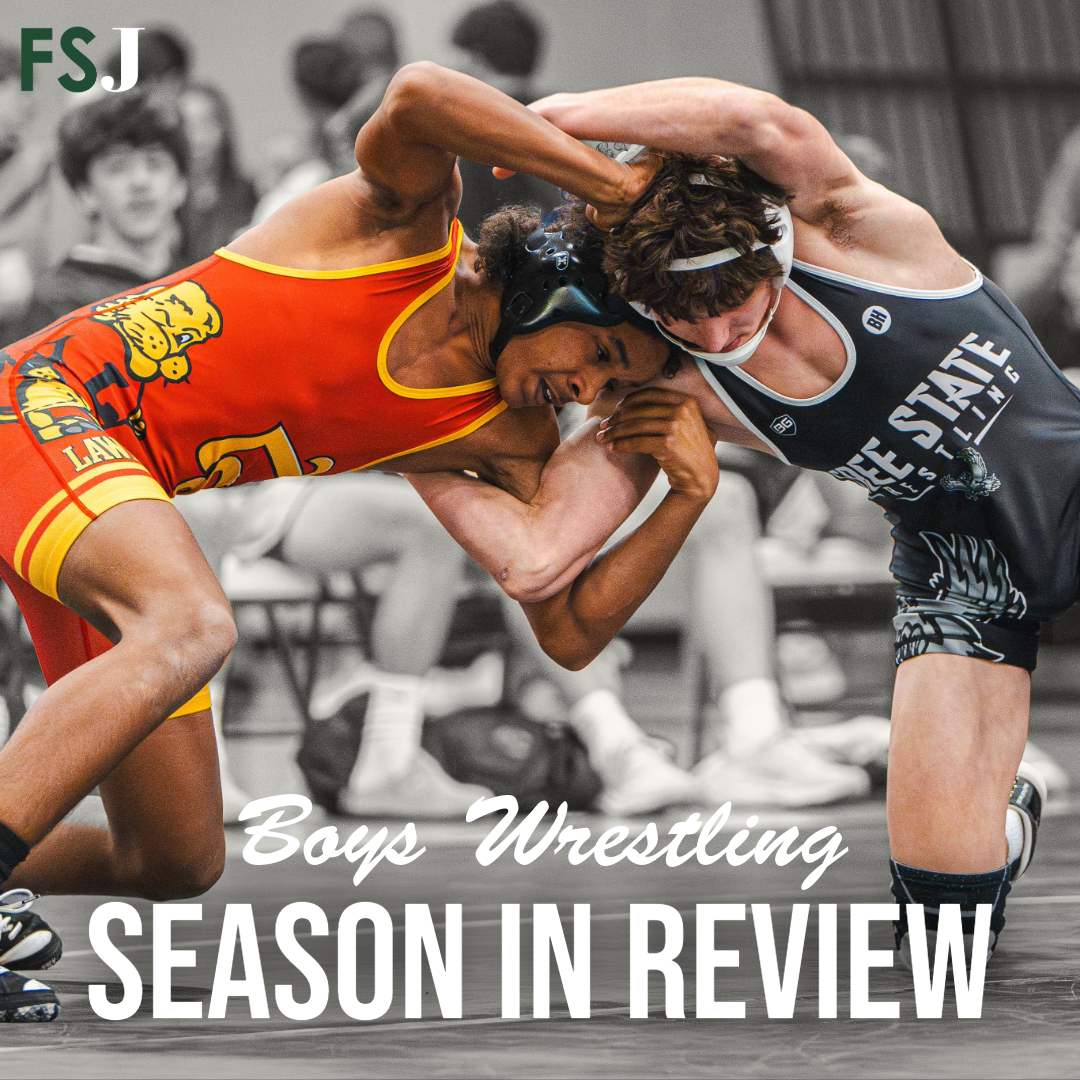“Don’t drink.”
Ever since we were old enough to understand the concept of alcohol, they’ve drilled it into our heads. Elementary school guidance counselors, freshmen health teachers, Red Ribbon Week–they all work together toward the common cause of preventing teenagers from drinking alcohol.
Alcohol was a looming, forbidden evil.
Until high school, that is.
We are presented with a dilemma. We could satisfy our burning curiosity and try the substance that’s been stigmatized since the 2nd grade. Or, we could resist the pull and adhere to the words universally spoken by parents.
“Don’t drink.”
GETTING STARTED
Lawrence, Kansas doesn’t have a beach. It doesn’t have a mall. It doesn’t even have the world’s largest ball of twine. But it does have liquor stores.
“There are levels to drinking,” senior Jon Fitzgerald said. “People start initially because they’re bored and it’s a very social activity. People want the experience of getting drunk.”
“I have never drunk before, so I don’t really know what the feeling is like to be drunk,” senior Ruthie Ozonoff said. “But, I think people like the feeling of being drunk, and … do it socially … like it’s just kind of what everyone does or their friends do, so they want to be part of the crowd.”
The drinking cycle is fostered by boredom as much as it is curiosity, and many students have tried the substance at least once.
“I have heard of a lot of people who do it,” Ozonoff said. “It’s kind of surprising sometimes because I’ll be talking to a group of friends and they’ll talk about who got drunk this weekend and I’ll be like, ‘whoa I never knew she drank.’ Usually I’m really surprised at the people who do drink, so I think lots of kids experiment.”
“I think having your own opinion [about drinking] is a good way to go about it,” junior Emma Norwood said.
“I don’t drink because I’ve been involved in a lot of sports and so my coaches have really influenced me not to drink,” Ozonoff said. “I know that if I did drink excessively, … I’m not going to do as well as I would in my sports because my body would be trying to process that alcohol.”
Gradually, teenage drinking has become so widespread that high school students are expected to drink.
“Just talking to your friends about it [creates a pressure],” an anonymous student said. “[Drinking] could influence your future … [especially] if you get caught.”
“There’s a standard. High school students go to football games. High school students go to house parties and get drunk,” Fitzgerald said.
HOW TO GET THE ALCOHOL
Despite the stringent laws regarding minors purchasing alcohol, it proves relatively easy to obtain.
“You know someone who knows someone who’s old enough to get alcohol,” Fitzgerald said. “People who are of age sometimes charge–especially if they’re buying for junior high kids.”
[Sometimes they] take it from their parents … and hope that they don’t count what’s missing,” Ozonoff said. “Usually they [also] hang out with older people who are in their twenties who can get it for them easier.”
“Older siblings or friends,” Norwood said.
Students’ choices of alcohol range from beer all the way to hard liquor.
“There’s always beer, but whisky and rum are very popular too,” an anonymous student said.
“It’s [mostly] anything they can get their hands on … [like] vodka,” an anonymous student said. “They usually mix it with like soda or something in a cup so their parents don’t know that they’re drinking it.”
WHAT IT FEELS LIKE TO BE DRUNK
“Basically you feel dizzy,” an anonymous student said. “You can have clear thoughts most of the time, but it’s just really hard to express those thoughts.”
The blame falls upon the alcohol.
“People get drunk and use it as an excuse to be more reckless. They blame it on being drunk.”
“I had to take care of one of my friends overnight while she was drunk,” an anonymous student said. “I woke up and she had thrown up all over me, thrown up all over my clothes that I had on the bed and I had to put her in the bathtub for a while. It was … bad. I felt really alone and really used. I felt like … she didn’t even care that she was at my house [and that] I was going to have to explain to my parents … and her parents.
The current drinking age (21) is nevertheless up for debate amongst students.
“I think [the current drinking age] is good because scientifically your brain isn’t done growing until you are in your twenties,” Ozonoff said. “I think that if your brain is more developed and more mature you’re … going to have more respect for your body and more restraint. You’re not just going to drink and drink and drink until you’re completely hammered and feel disgusting. You’re going to respect your body.”
Others disagree.
“Honestly, we can fight and vote at age 18,” said senior Scott Richardson. “We can give ourselves lung cancer, so why not liver cancer too?”
MEDIA INFLUENCES AND PEER PRESSURE
So teenagers are drinking. Perhaps a temporary escape is not the only reason why.
“I’ve been peer pressured before,” an anonymous student said. “People are like ‘Come on, drink. You’re such a sissy. You’re such a prude. Come on. We won’t get caught.’ I just can’t do it.”
The media tends to treat drinking with levity.
“TV shows show drinking on a regular basis,” Richardson said. “It’s a bandwagon type deal. Every body’s doing it.”
“Tons of movies show people drinking, partying and how fun it is,” Ozonoff said. “But they don’t really show afterwards. … When they do, it’s usually funny like we’re laughing at the person who has the hangover, but you know, it probably really sucks.”








